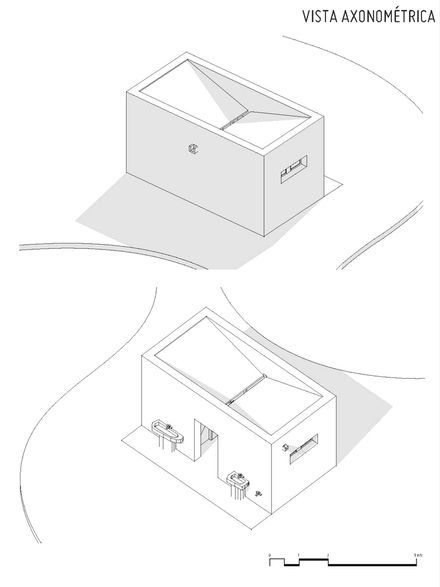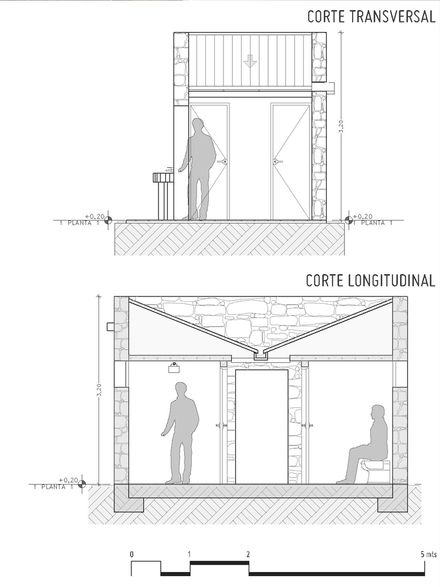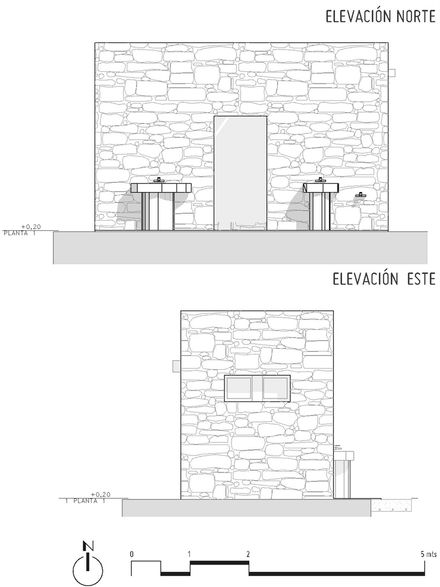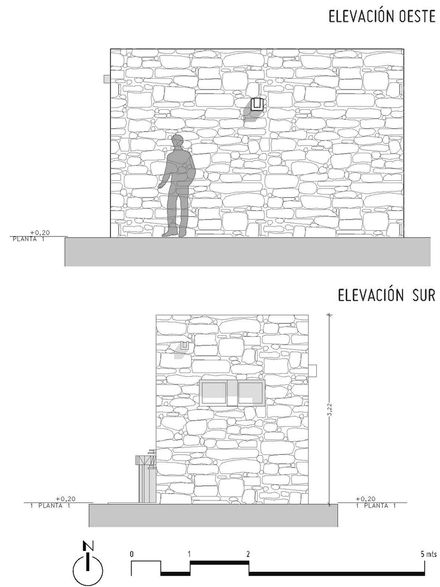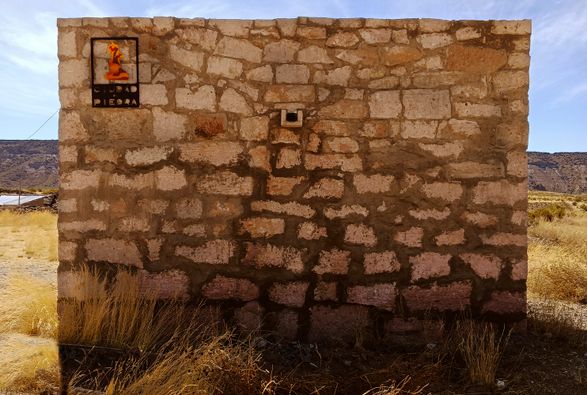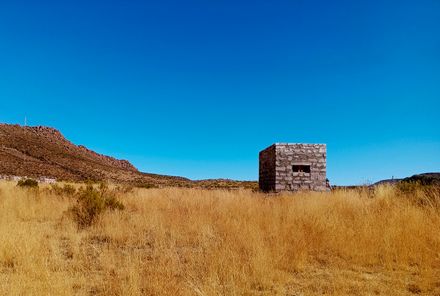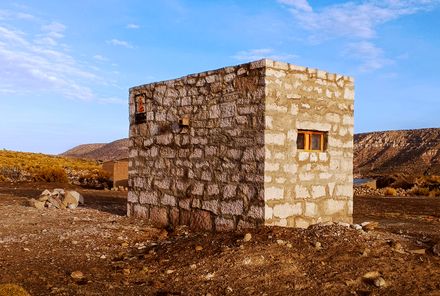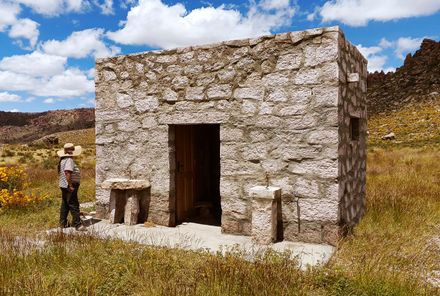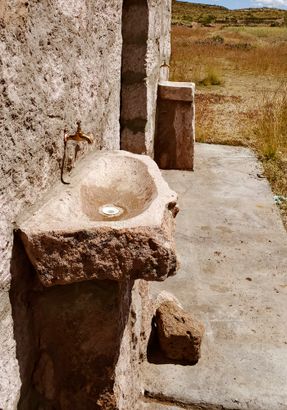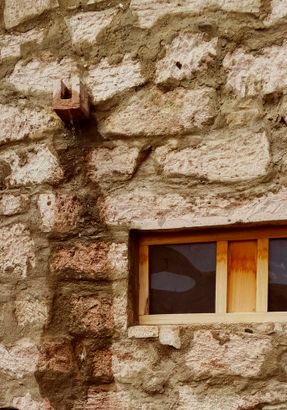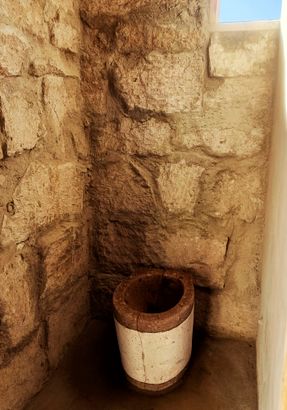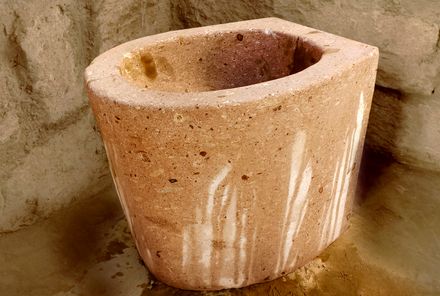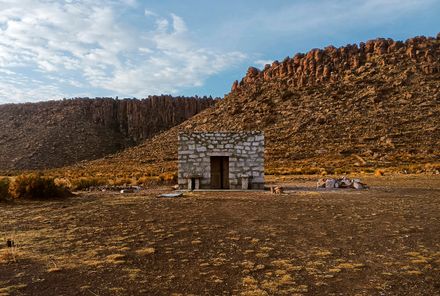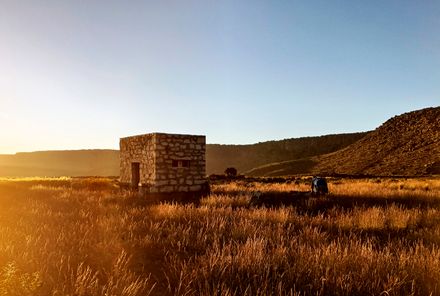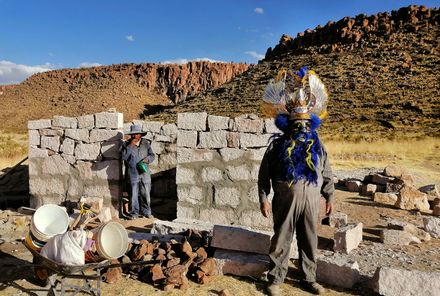Health Tourism Module
ARCHITECTS
Duarqui Srl
LEAD ARCHITECT
Efrain Miguel Calle Sarzuri
PHOTOGRAPHS
Efrain Miguel Calle Sarzuri
AREA
13 M²
YEAR
2023
LOCATION
Calacoto, Bolivia
CATEGORY
Tourism, Learning
English description provided by the architects.
The project protects the ecosystem, uses local materials, and safeguards the biodiversity of birds and plants. It aims to provide a comfortable, ergonomic, sustainable, and ecological environment.
The driving idea is based on a modular grid, utilizing pink rock stone with stone toilets and sinks, rustic bronze faucets, and pine wood doors, whose properties withstand the extreme weather conditions of the Andean plateau.
The orientation and access openings respond apxpropriately to sunlight and low temperatures. The module requires short-term maintenance, does not harm the local flora and fauna, and strengthens community customs.
Added to this was the unique use of the site's richness, the pink rock, whose properties defined the shape of the project.
Another key aspect was to create architecture capable of withstanding the extreme weather conditions of the site, with winters and winds so severe that they can crack concrete.
The Andean plateau has its own distinct characteristics, and the project does not distort the natural image provided by the site.
The bathrooms were designed using fixtures made of local pink stone, including two suspended stone sinks, rustic bronze faucets, natural pine doors, and concrete floors to properly seal water flow in the showers and facilitate cleaning.
The orientation and opening of the entrances were organized according to the times of greatest module use, appropriately responding to water use during low temperatures.
Additionally, entrances were shielded from prevailing winds.
The height of the project is based on ergonomics and the use of traditional community tools, avoiding cranes or stone assembly equipment typically used in the city. The Health Tourism Module is part of a larger tourism project.
Its main objective is to provide a comfortable, ergonomic, sustainable, and ecological environment characteristic of the site. The design of the artifacts accommodates delegations of up to 25 people per visit, making their construction essential for tourists.
The driving idea was born from a modular grid that meets anthropometric standards and proper material handling.
Construction was carried out by semi-skilled workers; however, it is sustainable due to low pollution, minimal waste, and the use of local tools.
The project's dissemination to the community, its construction, and its current operation did not generate material contamination or damage groundwater.
It is self-sustaining, requires no short-term maintenance, does not harm local flora or fauna, and has strengthened the community customs of the families in the association.
The Sanitary Tourism Module project of the Patacalamachi City of Stone ecotourism association (A.E.C.P.C.P.) is the work of the Calle and Tancara families, who were born and live in the Andean highlands of the department of La Paz in Bolivia.
